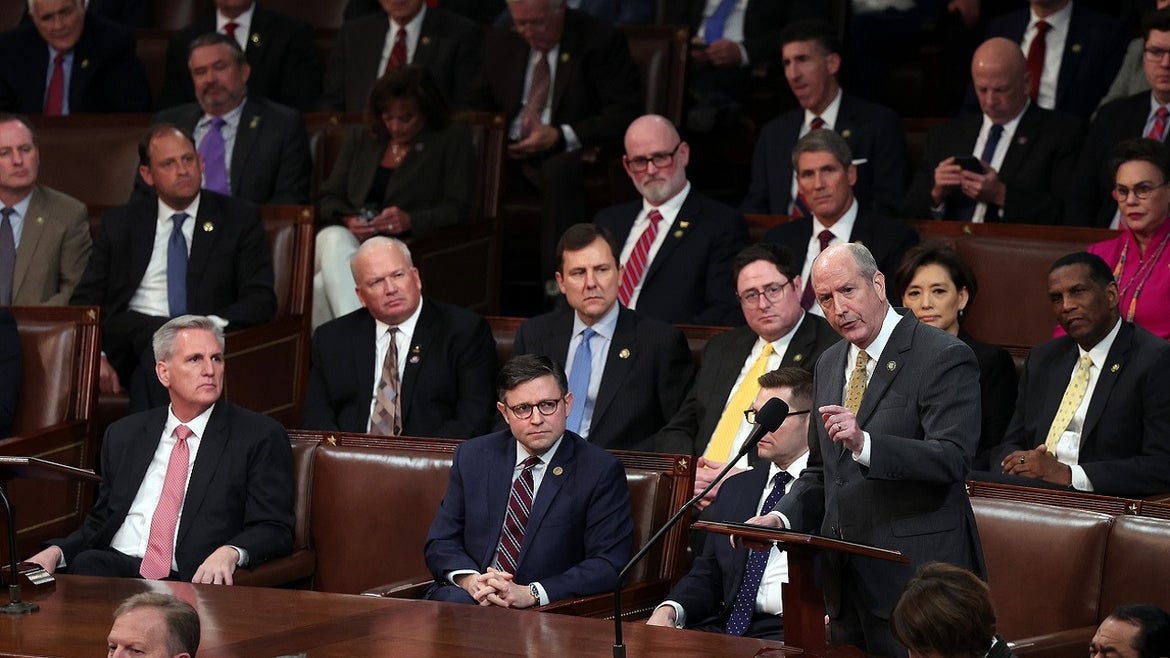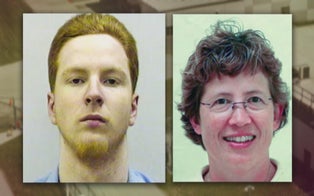The historic and tedious battle to elect a Speaker for the U.S. House of Representatives dragged through its third day.
Day 3 of the nation's historic and embittered effort to elect a Speaker of the U.S. House of Representatives has turned into Night 3, as the tenth round of voting began just before 7:00 p.m. Thursday evening.
Once again, the House failed to break a contentious deadlock after four votes on Thursday afternoon. The deadlock has paralyzed all lawmaking efforts at the country's Capitol and made history as the longest Speaker fight since 1856.
Democrat Nancy Pelosi, who ended her tenure Tuesday as Speaker, likened the repeated failures to "insanity," on Thursday, saying Republicans were "doing the same thing over and over again with no change."
Rep. Hakeem Jeffries, a Democrat from New York who is his party's Speaker candidate, said, "It's my hope that today, the House Republicans will stop the bickering, stop the backbiting, and stop the backstabbing of each other so we can have the back of the American people — that’s what we were elected to do."
Social media exploded with criticism, cynicism and jokes about the inability of Republicans to elect a leader after multiple votes.
Right-wing Republicans continued to hijack the proceedings Thursday by defecting from efforts to elect the heir apparent, GOP Rep. Kevin McCarthy of California, a politician they say is not fit to lead.
At the end of Thursday's initial vote, McCarthy again had 201 votes. Rep. Victoria Spartz of Indiana again did not vote for any candidate, simply saying "present" when her name was called on the floor.
And so it went in the eighth vote. By round nine, McCarthy had lost one vote after Rep. Ken Buck, McCarthy supporter from Colorado, did not vote, reportedly because Buck was on his way to a medical appointment. Jeffries, whose party is not in power, continued to receive 212 votes.
McCarthy needs 218 votes to win. In rounds four, five and six on Wednesday, the same 20 rebel Republicans voted for Rep. Byron Donalds. On Thursday, Matt Gaetz split from that camp, voting twice for former President Donald Trump, which drew growns and boos from those in the House.
After a tenth round of voting wrapped up at around 6 p.m. Thursday, McCarthy still came up short, with 200 votes.
Soon after, Rep. French Hill stood to nominate McCarthy for the fifth round of voting of the day, followed by a nomination for Hakeem Jeffries, who once again took 212 votes in the fourth vote; nods for Kevin Hern and Byron Donalds followed, and a nomination for Donald Trump by Matt Gaetz, which was met with silence in the House. The voting got underway at 6:45 p.m.
McCarthy failed to gain any votes despite fiercely negotiating Wednesday night with party defectors, and offering more concessions including reinstating a rule that a single House member can force a vote to oust the Speaker.
Without a majority-elected Speaker, the House is paralyzed. No work can be done, no committees can be appointed, no members can be sworn in and newly elected representatives cannot receive security clearances that would allow them to be briefed on classified intelligence and security information.
The last time the House failed to elect a leader in its opening session was in December 1923, when it took nine votes over three days to finally pick Republican Frederick Gillett of Massachusetts to a third term as Speaker.
Rep. Scott Perry of Pennsylvania tweeted Thursday morning that no agreement had been reached with McCarthy's camp. "A deal is NOT done. When confidences are betrayed and leaks are directed, it’s even more difficult to trust. Totally (unsatisfactory). I will not yield to the status quo."
Related Stories






